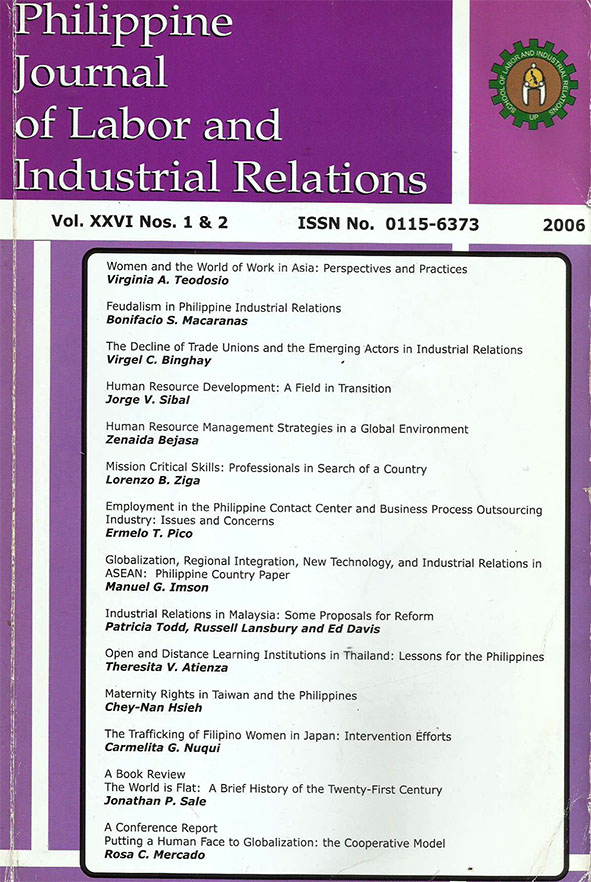Maternity Rights in Taiwan and the Philippines
Abstract
Health care, job-protected leaves and wage replacement constitute three fundamental components of a maternity policy. Both Taiwan and the Philippines grant statutory job-protected maternity leave and regular wage benefits to female workers. Acts of illegal dismissal are considered discriminatory against women employees. However, the enforcement of laws fro the Philippines, there are no illegal dismissal cases involving pregnant workers or workers on maternity leave filed in courts since the 1970s. In Taiwan, however, many instances of illegal dismissal disguised as valid termination have been encountered in the past two decades.
The Labor Code of the Philippines is well-organized, unlike in Taiwan where laws for maternity rights are spread out in several statutes making it hard for ordinary workers to access the laws and to fully understand them.
In Taiwan, employers are asked to provide benefit payments to workers on maternity leave unlike in the Philippines where workers are covered under the Social Security System. Taiwanese policy puts maternity benefits at the expense of employers. From the employers' viewpoint, it is a loss if they hire pregnant workers.
The policy deters the employment of more female workers and incurs acts of discrimination against pregnant workers and workers on maternity leave.


